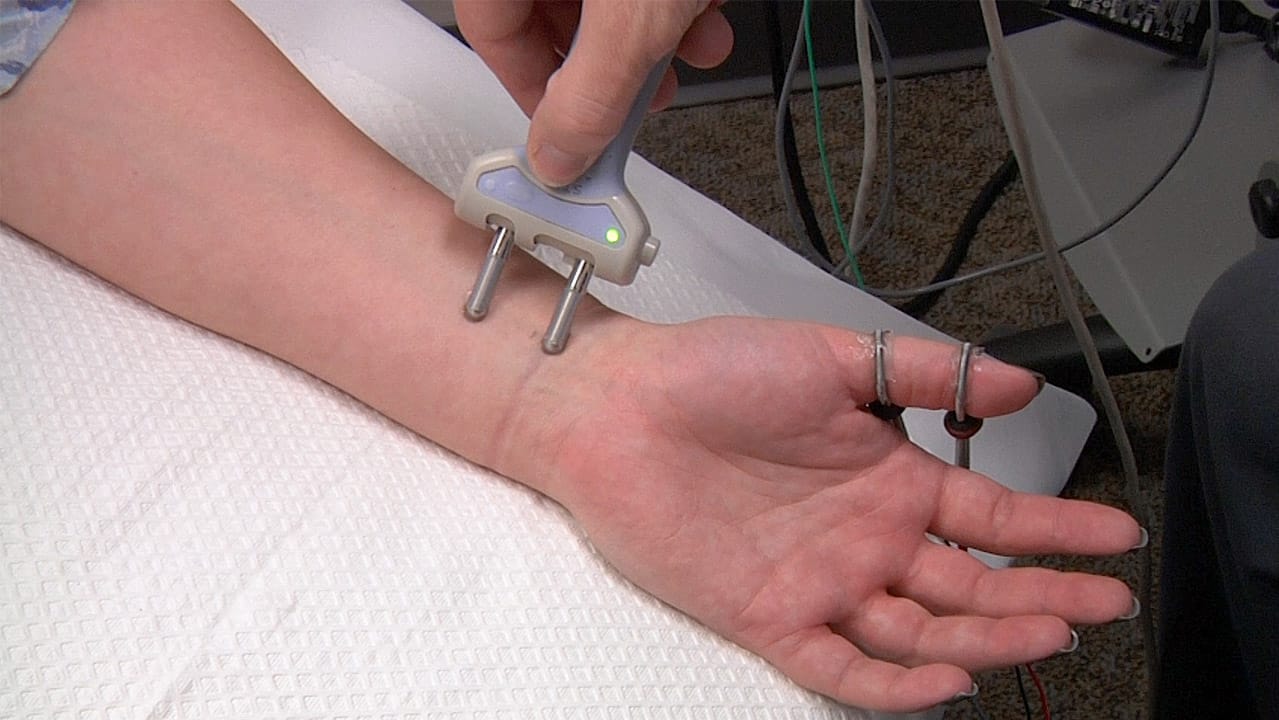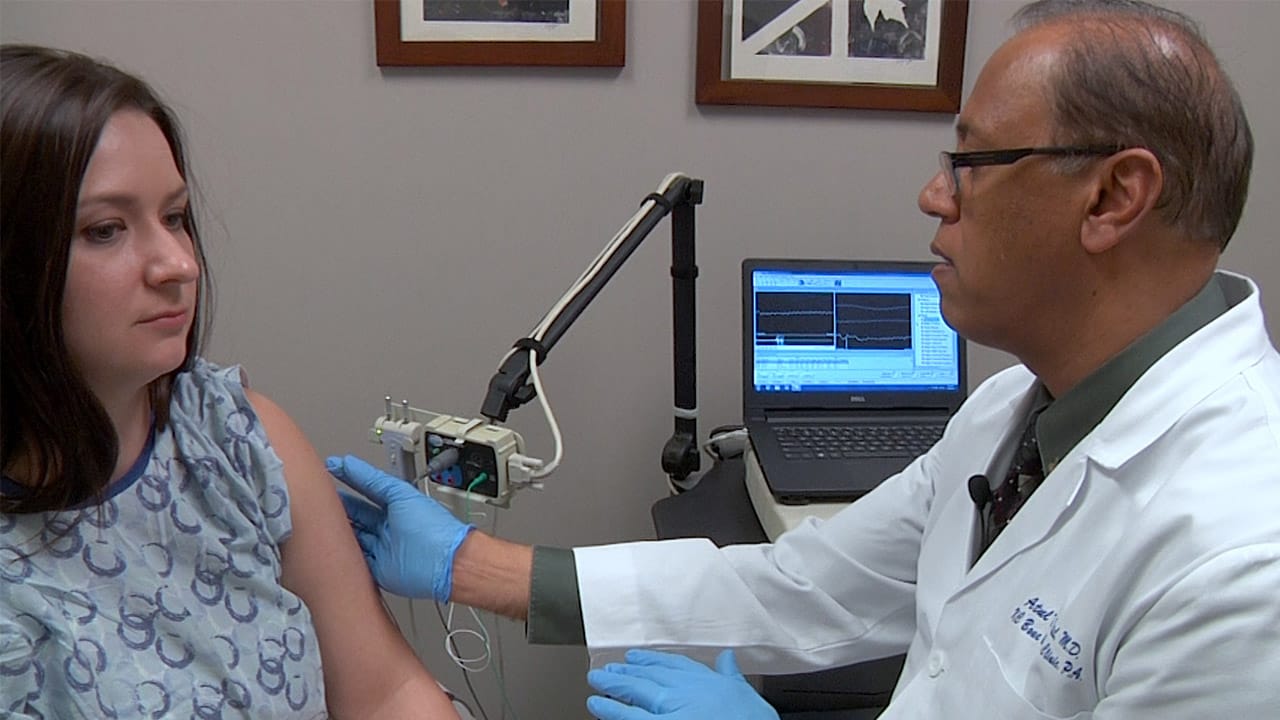Posted on Thursday, August 15, 2019 in Videos
Nerve Conduction Studies and EMGs are tests used to evaluate a person's nervous system. These tests can help doctors identify problems with muscles and sensory feelings. Dr. Atul Patel of Kansas City Bone and Joint Clinic explains.
Transcript
Hello, this is Dr. Patel. I am a rehab physician also known as a physical medicine and rehabilitation specialist. I want to tell you a little bit about nerve conduction studies and EMGs.
When patients come in to see me they often have problems with either numbness, tingling, pain, or weakness and when we assess patients on clinical examination we check their reflexes, we check their sensation, we check their strength and look for the other clinical signs. What an electrophysiologic study does is allow us to fully assess the nervous system to see where the problem may be coming from.
So with the nerve conduction studies there're two parts: the motor part and the sensory part. Motor - to check the part of the part of the nervous system with which you move your body parts and sensory with which you feel and we get the responses by stimulating a nerve with a very small electrical stimulation or a very small shock. This may sound bad but it's a very simple and benign stimulus and often feels like a tap.

EMG stands for electromyography and that part of the test is where we're looking at how well the muscle is functioning. We do this typically with the use of a needle which is a very thin needle and we just go under the skin and listen for electrical impulses from the muscle.
This gives us information about how well the muscle is working and depending on the type of injury or problem the nerve or the muscle has, there may be different sounds. Based on that, in conjunction with the nerve conduction studies as well as what the patients' symptoms are, we can often make a very accurate diagnosis. So basically the whole test together helps us determine the location of the injury, the type of injury, and how acute or chronic the injury or problem is.

Whenever you're getting an electrophysiologic study you want to make sure that the person who's doing it is properly trained. Typically it's a neurologist or physiatrist or a rehab physician and you may want to look for additional certification. For example: are they board-certified in electrodiagnostic medicine? Also you may want to check and see if the lab where the procedure is being done is an accredited lab.